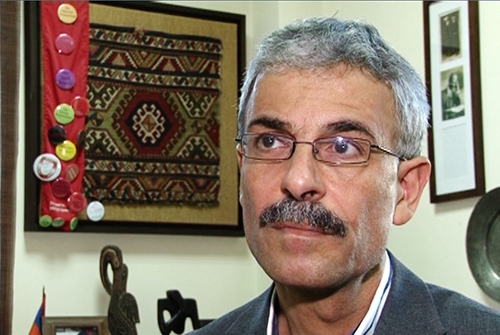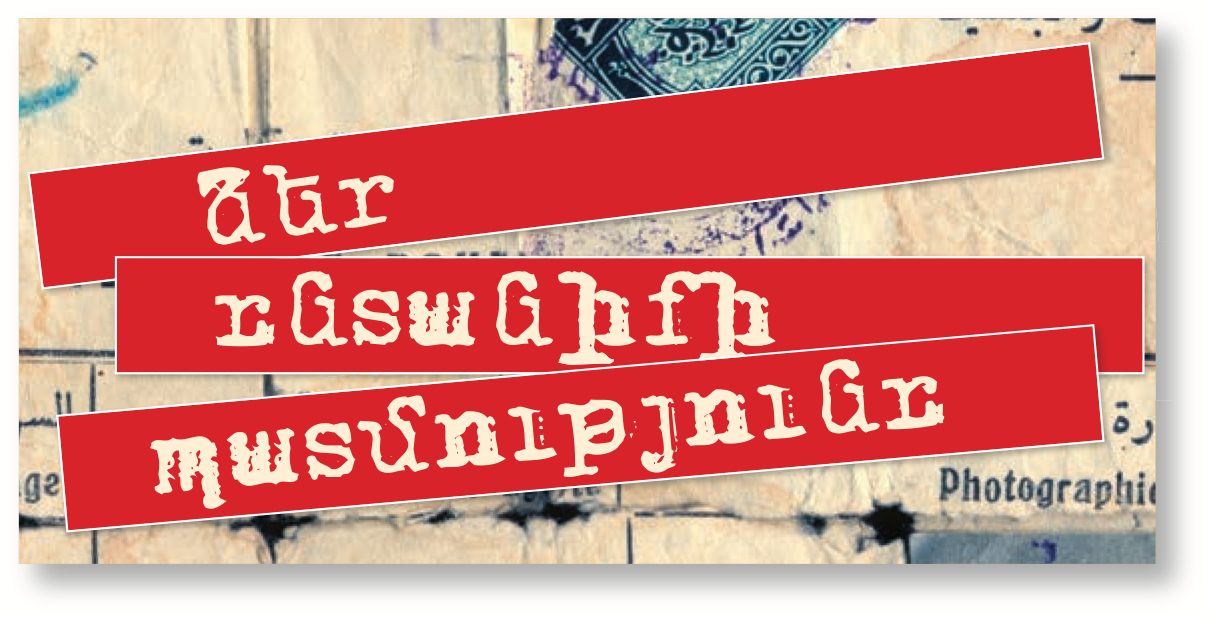 Head of the Spyurk Center at Beirut’s Haigazian College
Head of the Spyurk Center at Beirut’s Haigazian College
Antranig Dakesian
My father was on the list to repatriate to Armenia. And he went, with his wife, and settled in Vanadzor. He was a teacher in Aleppo. My uncle has children and grandchildren there. He’s now deceased. He was born in 1917.
We were in Zahleh. It’s a town near Aynjar. We were to go as well, but my uncle had sent some letters. And my father says the letters were coded. As a result, we didn’t go. But we had sold our house. We incurred losses but didn’t go.
I should say that my father was one of the first to go to Yerevan in 1960. I believe the road had opened in 1958. He went to Yerevan and wanted to move there. But after staying a month, he returned to Beirut. We had already moved to Beirut.
I believe, however, that now we must view these problems of relocating and settling differently. We must use other standards. It’s no longer the case that you are a Lebanese if you live in Lebanon, or that you are a resident of Armenia (Hayastantsi) if you live in Armenia. One’s nationalist emotions must be used correctly and not be abused. As a consequence, the individual benefits and so does the collective, the nation. How would we suffer if we had Armenian citizenship? If we are to gain from it, so be it. What’s the problem?
On the other hand, if the population of Armenia has decreased today, fine. If we diasporan Armenians become Hayastantsis, the population of Armenia will increase. But, let me say, when Armenia became independent, there was an important percentage in the diaspora that wanted to acquire Armenian citizenship. Now, that percentage has certainly dropped because that initial euphoria and enthusiasm doesn’t exist. When it did enthusiasm did exist, it was possible to give them citizenship
We’ve always had immigration and emigration in our history, especially emigration. The main immigration took place in 1946-1949. That’s to say it was the biggest in our history. If I try to evaluate the immigration to Armenia, I note that the nationalist and patriotic emotions of diasporan Armenians were abused somewhat, and this led to people feeling a little deceived, perhaps.
A person’s national emotions is a great capital asset and they must be used correctly. The problem of integration isn’t such that it’s enough that I want to integrate. No. You must also reach out to me. It must be reciprocal. It cannot be a one-way street.
We also have this in Beirut. We had it in 1938-1939, when people from Mousa Ler came to Beirut or to Aynjar. They were accepted somewhat as strangers. This is natural. But each person must be a bit more attentive in this regard.
During the 1940s, there was a balance among the Armenian political parties in Lebanon. Due to the immigration to Armenia, the divide and difference grew much bigger because repatriation was the reason for the communist mentality to be attacked, given the information received from Armenia. Thus, here, the pro-Tashnag line was given greater stress. The overall healthy equilibrium that existed, that was competitive and opened the door of competition, was struck.
Then too, it seems to me that the 1946-1948 immigration, which had an important impact on the diaspora, motivated people to be more realistic and integrated, not only regarding their own lives, but also regarding their surroundings and the homeland; regarding Armenia.



















